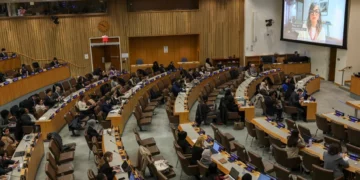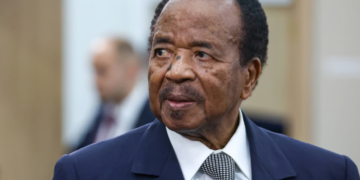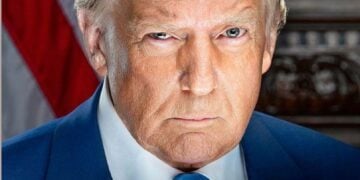President of the ECOWAS Commission Dr Omar Touray has blamed insecurity and the democracy crises facing West Africa as major hindrances to the integration process in the region even as he assured that the commission had commenced a series of introspective talks toward addressing ECOWAS’ entire integration framework.
Touray disclosed this at the African Public Square (APS) Second Continental Edition Conference on Friday in Abuja, with the theme: “Future Proofing Regional Integration in Africa: ECOWAS @50.”
Convened by Amandla Institute and African Leadership Centre, the APS, which is a platform that was created to instigate debates on African peace, security and development among African public intellectuals of diverse backgrounds, brought together leaders, policymakers, and academics to examine how ECOWAS can redefine its integration framework amid growing political, economic, and security challenges.
Touray, who was represented by Amb Abdel-Fatau Musah, ECOWAS Commissioner for Political Affairs, Peace and Security, stressed that the process is citizens-led and the outcome of all deliberations will end up in a draft pact that will determine the path that ECOWAS will take in the next 15 years.
“I would argue that we have a crisis of security, and then we have a crisis of democracy in West Africa today.
“We have to navigate between a lot that has been said about terrorism, violence, terrorism, and others.
“Democracy is also in crisis. It is in crisis today in West Africa and it doesn’t seem like leaders have learned their lesson,” he said.
Touray told participants that the world was entering what he termed a “warm war” era, a phase of global realignments and strategic rivalry and admonished West Africa to make deliberate choices to protect its collective interests.
He denounced the growing political exclusion in some member states, which he said, undermined democracy and contributed to the Sahel state’s recent withdrawal from the regional bloc.
“Only renewed commitment to inclusivity, good governance, and dialogue can bring the estranged members back into the ECOWAS family.
“Today’s popular method of team capture is by member states eliminating dangerous opponents, whether political parties or candidates, from the electoral process,” he said.
Also speaking, Dr Kayode Fayemi, former Governor of Ekiti State and onetime Nigeria’s Minister of Solid Minerals said West Africa’s security crisis is traceable to governance failures, adding that corruption, exclusion, and weak institutions had contributed to do greater damage to regional stability than armed groups.
Fayemi, who is also the co–founder of Amandla Institute, warned that no amount of military firepower would bring lasting peace without addressing the root causes of public discontent.
“West Africa’s escalating insecurity is rooted less in the gunfire of insurgents and more in the failures of governance that have eroded public trust, Kayode Fayemi, former governor of Ekiti State has said.
“What we face is not just a security deficit, it’s a governance deficit. Until we rebuild trust between leaders and citizens, insecurity will remain our daily reality,” he said.
The former Governor said the resurgence of coups and violent extremism across the region reflected citizens’ deepening loss of faith in democratic governance.
He also warned that military takeovers, however well-intentioned, would not cure the underlying inequality, unemployment, and poverty that continued to feed instability.
The former governor urged ECOWAS to move from rhetoric to reform, adopting a people-first security strategy anchored on justice, accountability, and inclusion.
“Genuine stability will only emerge when citizens see democracy working for them, not against them,” he said.
Fayemi described ECOWAS’ Golden Jubilee as a “moment for deep reflection” on the trajectory of regional integration.
While commending ECOWAS’s early role in promoting peace and democracy through interventions in Liberia, Sierra Leone, Côte d’Ivoire, The Gambia, and Guinea-Bissau, he cautioned that the organisation currently risked losing touch with its citizens.
“ECOWAS must move beyond an elite-driven community of rulers to one that truly represents its people, particularly the youth and women.
“Overdependence on donor funding and stalled reforms threatens its long-term relevance,” he said.
Executive Secretary of the Council for the Development of Social Science Research in Africa (CODESRIA), Godwin Murunga, in his remarks said that integration must move beyond state-centric models to people-led movements.
Also speaking Funmi Olonisakin, Vice President, International Engagement, King’s College, London, called for a “cross-generational pathway” to regional transformation.
“With an average age of just 18, West Africa’s young population represents both a challenge and a reservoir of potential,” she said





